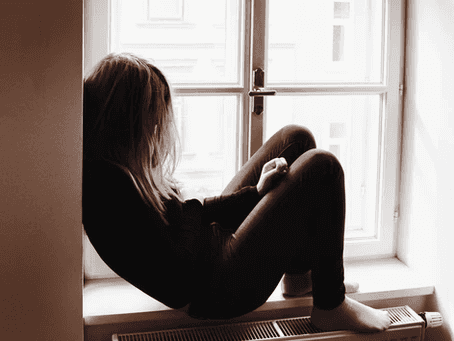
Feb 28, 2022
Help with Loneliness in the Modern World: Coping, Combatting and Overcoming
Loneliness takes various forms—whether it's moving to a new place and navigating the unfamiliar, the difficulty of finding like-minded individuals, the challenge of fitting in, or the frustration of unfulfilling experiences on conventional dating apps. Perhaps you've hesitated to explore new activities simply because you wished for someone to accompany you.
Everyone experiences loneliness at times. It impacts all generations and all nationalities and it became even more common because of the pandemic that swept across the world. Loneliness is one of the feelings that can’t be measured physically or quantifiably, yet it can affect an individual mentally. At times, the feeling of loneliness can feel overwhelming and cause pain to people because they might feel like they’re not desirable or unwanted. However, you can learn to cope with it, combat it and overcome it, and our organisation will strive to empower you to do that.
Life's journey is rife with diverse struggles, and sometimes, all it takes is a conversation or a companion for a walk to make a significant difference. The concept of loneliness and fulfilment is deeply personal, with no universal solution that fits everyone. At our core, we recognise the importance of meaningful connections and aim to redefine the way people experience companionship.
We all Feel Lonely; You are not Alone
Many experience loneliness because of the absence of family, friends, or any social support structure, even if they enjoy their own company. A study by the Office of National Statistics found that one in every five adults in the UK feels lonely. Loneliness can also affect people who have a lot of friends but feel like they don't have a strong connection with anyone. Social media can also cause loneliness, especially if users are comparing their lives to the seemingly better lives of others. This can lead to feelings of inadequacy, leading to loneliness, particularly in young people.
Loneliness from Being Single and Dating:
Being single can contribute to loneliness, especially when people see their peers achieve relationship milestones like marriage or engagement. The advent of dating apps like Tinder, Bumble and Hinge can help some, but others might experience it as even more disheartening because they are not successful in finding a partner. The pressure to find a partner can also lead one or both partners to feel lonely.
Loneliness from Childhood Bullying:
Childhood bullying can lead to feelings of loneliness and can impact an individual's self-esteem. Young people who are bullied may avoid school and social events, leading them to become socially isolated. Studies have demonstrated that childhood bullying can create a ripple effect of negative outcomes in adulthood, including increased loneliness.
Loneliness in Older Age:
Finally, loneliness in older adults can also be attributed to the onset of illnesses such as Dementia and Alzheimer's. According to Age UK, two million people aged over 75 live alone, and more than one million elderly people say they "go for a month without speaking to a friend, neighbour, or family member." The increased physical limitations that come with aging and decreased social mobility can cause a lack of independence and make the elderly feel lonely.
The Mental Health Impacts of Loneliness
Sadly, loneliness is not just a feeling, it is also a complex mental health issue that can have significant impacts on your mental and emotional well-being. Sometimes, even those without a diagnosable mental health condition can struggle with loneliness.
Loneliness and mental health are often intertwined. People may feel isolated for several reasons, including depression, lack of confidence, difficulty making friends, being introverted, difficult feelings and shyness. These factors can make people hesitant to socialise and open up to others, ultimately leading them to feel lonely and disconnected from others.
Social isolation can be challenging, especially for people with social anxiety. People who feel anxious in social situations may be more likely to avoid them altogether, limiting their opportunities to make meaningful connections with others. This lack of social interaction can exacerbate feelings of loneliness and further compound mental wellbeing challenges, so finding ways to foster human contact is key. Aside from contact within an online community, it's best to meet people in person in public safe places. This method reduces the risk of being scammed by new friends who are not who they say they are in their profiles. You can also use search engines to verify profile pictures and share information about relationships with others, helping you build more meaningful connections.
7 Coping Skills to Help with Loneliness (and When to Seek Help)
1. Focus on self-care. Make sure you eat healthily, exercise, and get a good night's sleep.
2. Join clubs, societies, or attend events that cater to your hobbies that will allow you to meet new people with similar interests.
3. Improve your social skills by taking online courses or by reading self help books.
4. Make a list of your current social support structure, including family, friends, and co-workers, and regularly check-in with them.
5. Volunteer and spend time giving back to the community.
6. Avoid unhealthy coping mechanisms like drugs, alcohol, or comfort eating.
7. Consider seeing a counselor or therapist if feelings of loneliness persist and begin to cause negative impacts on your life.
7 Hobbies or Activities to Deal with Loneliness:
1. Start reading. Books can provide a comfortable escape and help alleviate feelings of loneliness.
2. Learn to play a musical instrument or start singing if music is your thing.
3. Take up painting, knitting, or any other creative and calming activity.
4. Explore nature by camping, hiking, or gardening.
5. Take up cooking or baking as a hobby. It's a rewarding activity when you get to enjoy the results.
6. Taking online or in-person courses, learning new languages, or learning to code.
7. Try yoga or practice 30 minutes of meditation.
While these tips help when it comes to feeling lonely, it's vital to remember that it can be challenging to put yourself out there. Often, loneliness stems from low self-esteem or confidence, so it's essential to be kind to yourself and take things one step at a time. You don't need to rush; remember that vulnerability is a process, and it takes time.
How to Deal with Loneliness Your Top 10 FAQs Answered
Feeling lonely can be overwhelming and leave you feeling isolated. It can be a tough emotion to cope with and can lead to depression, anxiety, and even physical health problems. You are not alone, and many people struggle with loneliness at different stages of their lives.
What are some coping mechanisms when feeling lonely?
There are several ways to cope with loneliness. You can start by engaging in activities that make you happy, such as playing sports, or art, the local library or attending events. Additionally, volunteer work can be rewarding and can give a sense of purpose. Also, cultivating friendships and engaging with a community can help those that feel lonely and improve their emotional health.
How can I overcome my feelings of isolation?
If you are struggling with feelings of loneliness, it's important to stay in touch with people you care about. You can also reach out to a professional, such as a therapist, counsellor, or support group. Another way is to try mindfulness and meditation which can help you relax and focus.
What can I do about my feeling of anxiety due to loneliness?
There are several anxiety management techniques like deep breathing, progressive muscle relaxation, and visualization. Engaging in physical activities such as exercise can also help alleviate anxiety. You can also talk to a trusted friend or talk therapies to help manage your anxiety.
Are there any good support groups that can help me feel less lonely?
Yes! Many support groups specialize in helping people who struggle with loneliness. Some examples include The Samaritans, Mind, and The Meetup. These organisations provide a safe and supportive environment for individuals to share their experiences and provide support for one another.
How can I revive or create a healthy social life?
You can start by identifying your interests and spending time with groups that share them. Engage in social activities such as gatherings, sports or volunteering. You can also try online platforms like Instagram, Twitter, or even dedicated apps like Meetup or Bumble BFF. You may even be able to meet someone to date!
What are some practical tips for dealing with being alone or feeling lonely?
Surround yourself with positive and supportive people and activities that make you happy and productive. Remember that being alone is not the same as being lonely – challenging yourself to practice mindfulness and cultivate new hobbies can be hugely rewarding.
How do I tackle loneliness if I am an introvert?
As an introvert, it can be challenging to approach social situations. However, try stepping out of your comfort zone and start with small interactions and build your way up! Also, you can focus on activities or groups that allow you to engage in your interests.
Can pets be helpful in combating loneliness?
Yes, pets can play an important role in combating loneliness! Studies show that having a companion animal is linked to lower levels of stress and can overall improve your mental health.
What are some healthy ways to combat loneliness?
There are many healthy ways to combat loneliness – starting with a daily routine that prioritizes consistent sleep, exercise, and healthy eating. Seeking therapy and connecting with support groups. You can also learn a new skill or hobby to engage in when you are feeling lonely.
How can I help others deal with loneliness?
Being a good listener and showing empathy can be crucial in helping others feel less lonely. By actively engaging with others and offering to help in any way you can, you can positively impact someone's mental health.
Loneliness can be a debilitating emotion that has far-reaching negative impacts. However, with the right strategies and support, everyone can learn to engage and to overcome loneliness. Remember that everyone has felt lonely at some point, and seeking help is not a sign of weakness. Be kind to yourself, and don't give up! Try some new strategies or reach out to support groups and loved ones. Remember, you are never alone.
By Jessica Miller
Our latest stories:
Feb 14, 2022
Lonely on Valentines Day?
Feb 12, 2022
Navigating the UK Dating App Scene: A Guide to Finding Love Online
Feb 28, 2022
Help with Loneliness in the Modern World: Coping, Combatting and Overcoming
See all posts



